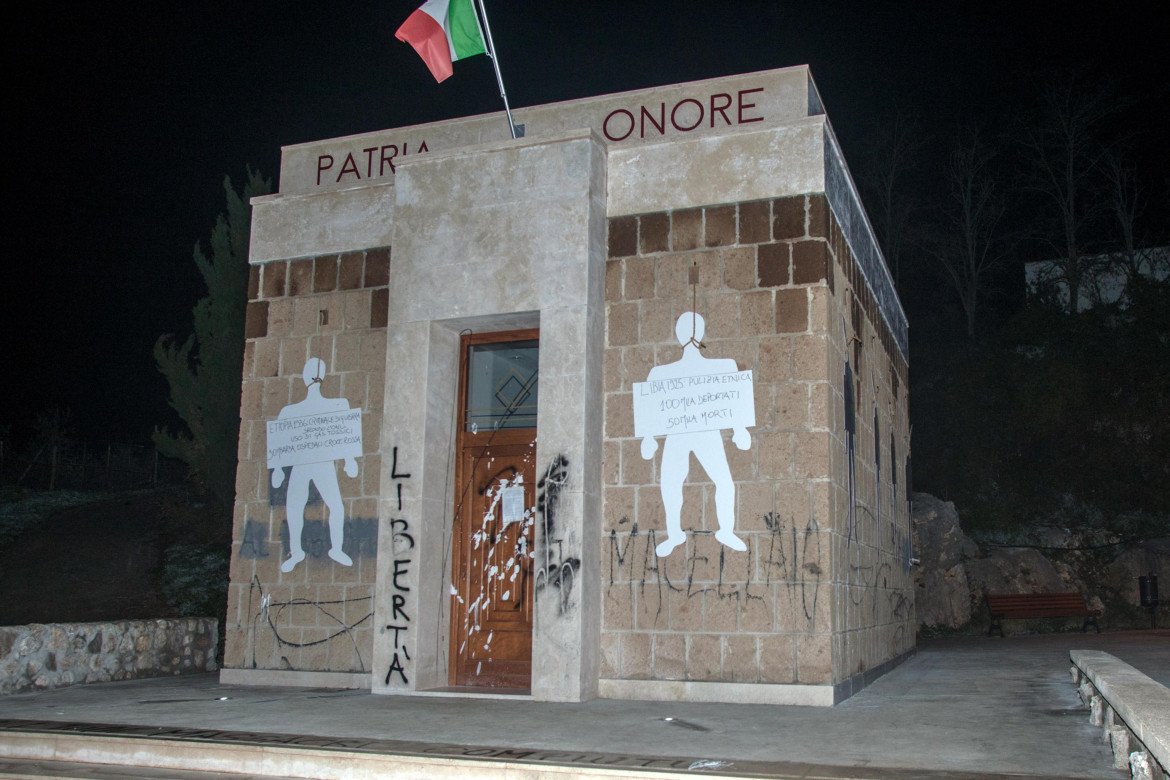Commentary
Old ignorance and a new ‘plan for Africa’
Italy’s colonial history speaks volumes not only about the Fascist regime but also about postwar Italy and how the ‘continuity of the state’ influenced the historical development of Italian democracy.

On May 5, 1936, after seven months of war, Marshal Pietro Badoglio telegraphed the news to Rome about the entry of the Italian Army’s troops into Addis Ababa, the capital of Ethiopia.
On May 9, Mussolini, from the balcony of Piazza Venezia, triumphantly announced “the resurgence of the Empire on the destined hills of Rome.” All this history is now following Giorgia Meloni like a long shadow in her trip to the former Italian colony, the first post-fascist Prime Minister and political daughter of the MSI, the heir party to Mussolini’s movement.
In reality, the fact that there was never a reckoning with that part of history is not exclusive to the far right and calls into question Italian society as a whole. Even nowadays, streets, squares and monuments all over the country are named after and dedicated to the imperialist war waged by Fascism, and no government or institution has thought to intervene to at least give an explanation of what Via dell’Amba Aradam, Via Addis Ababa or Largo Ascianghi mean in their historical context.
Italy’s colonial past has been an enormous repressed baggage for our Republic, which made the change from Fascism to democracy without its own symbolic Nuremberg trial, and instead formed its self-image with the false myth of “Italians are good people.” This was shown by the incredible extent of the ostracism by the press and mass media against the greatest (and former partisan) historian of Italian colonialism, Angelo Del Boca. His polemic with Indro Montanelli on the use of mustard bombs and asphyxiant gases by the Italian Army was particularly memorable (which the latter kept denying, implausibly, invoking solely his “personal memory” from his time among the occupation troops), a force whose aviation dropped 200 tons of explosives in the Battle of Scirè in February-March 1936 alone.
These war crimes were confirmed by documents and were not merely isolated incidents. After the occupation of Addis Ababa, massacres of civilians and partisans continued on a regular basis, so much so that the military office of the Ministry of Italian Africa recorded, as of June 10, 1940, 76,906 Ethiopian rebels killed, 4,437 wounded and 2,847 prisoners.
That history speaks volumes not only about the Fascist regime but also about postwar Italy and how the “continuity of the state,” as Claudio Pavone has taught us, influenced the historical development of democracy in our country.
In Ethiopia, police operations were coordinated by Rodolfo Graziani, a Fascist high official appointed viceroy of Ethiopia, war criminal and minister of the Armed Forces of the collaborationist Salò army. After the war, he was tried but quickly released from prison, becoming honorary president of the MSI in 1952. His pacifying “embrace” with Giulio Andreotti in Arcinazzo during one of the Christian Democrat politician’s election rallies would become infamous. In 2012, a mausoleum was inaugurated in his honor in the town of Affile, financed by the regional government of Lazio, then led by Renata Polverini and including the then-Councilman for Transport Francesco Lollobrigida, now a loyal underling in the Meloni government.
After an attack against Graziani by the Ethiopian Resistance on February 19, 1937, the Italian military command ordered a mass extermination (14,294 rebels killed and executed and 50,000 houses burned) culminating in the massacre of the Coptic monks of Debrà Libanòs and carried out by units led by Pietro Maletti. Decades later, the latter’s son, Gianadelio Maletti, who followed in his father’s footsteps in his military career, was convicted of aiding and abetting as part of the investigation into the December 12, 1969 Piazza Fontana massacre.
Giorgia Meloni could learn in Ethiopia the story of another of the founding fathers of her MSI: Alessandro Lessona, placed by Mussolini at the head of the Ministry for Italian East Africa. In the postwar period, having gone through the purge unscathed, he would be a member and then senator of the MSI in 1963. In April 1969, he resigned from the party and joined the National Front of Junio Valerio Borghese (another honorary president of the MSI) shortly before the coup attempt of December 7-8, 1970.
Thus, while she’s touting a chimerical “Mattei Plan” for Africa, Meloni might take the opportunity to think back to those founding fathers and “those people who are no more” to whom she dedicated her electoral victory in September. Instead, she will continue to ignore the issue (and so will national public opinion), banking on the country’s disinterest in knowledge of its past and relying on the sad spirit of our times, which recalls Karl Kraus’ famous aphorism: “When the sun of culture is low, even dwarves will cast long shadows.”
Originally published at https://ilmanifesto.it/il-mal-dafrica-del-presidente-del-consiglio on 2023-04-15
